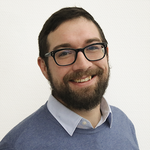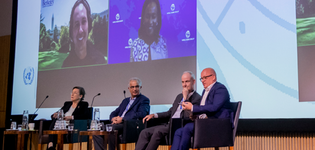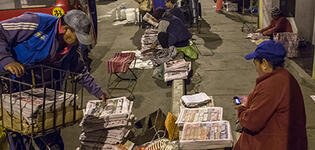Blog
Report from the WIDER Development Conference on reducing inequality
For several decades, UNU-WIDER has actively worked on pathfinding and groundbreaking research on inequalities. We host one of the most extensive collections of income inequality statistics in the world freely available and updated annually. I have written previously about how the institute was instrumental to putting global wealth inequalities on the map. And, in lesser known —but no less important— work we continue to focus on inequalities in several different dimensions.
For three days at the beginning of October, we hosted a WIDER Development Conference on reducing inequalities with UNIANDES. From 5 to 7 October, an amazing dialogue on confronting global inequalities took place in Bogotá, Colombia, nestled at high elevation (2640 meters) on the lower slopes of the Guadalupe and Monserrate mountains.
In the mission – a forum for knowledge sharing, discussion, and debate
Just from glancing at the programme, I could sense UNU-WIDER’s convening power —its ability to connect critical stakeholders with some of the brightest minds in research and policy. In person, the strength of UNU-WIDER’s network was palpable. The programme included a policy panel with Colombia’s Minister of Finance, José Antonio Ocampo, keynotes from Francisco H. G. Ferreira and Raquel Fernández, and the WIDER Annual Lecture by Daron Acemoğlu.
The livestreams of all of these are online, and recordings of all the parallel sessions are coming soon.
The programme included a policy panel with Colombia’s Minister of Finance, José Antonio Ocampo, keynotes from Francisco H. G. Ferreira and Raquel Fernández, and the WIDER Annual Lecture by Daron Acemoğlu.
The programme also included a parallel track dedicated to the VII Colombian Economic Congress which brought local experts and up-and-coming scholars to UNIANDES for the event. Parallel sessions were organized by more local initiatives too, such as Paz y Región and Semillero del Pacífico, but also convened by major regional and global institutions like the UN Conference on Trade and Development, the Latin American and Caribbean Economic Association, the Inter-American Development Bank, and several others.
Of course, UNU-WIDER’s research and its research projects were present, contributing to the deep pool of knowledge being shared. All-in-all, the conference was at the very least a demonstration of how our institute enacts a key part of its mission, to provide a forum for knowledge sharing, discussion, and debate.
The current state of research on inequalities
Taken together, the most recent research efforts on inequalities around the world indicate two interlocking things. First, disparities between people have long been too great and constitute an endemic global crisis.
In many cases, these disparities are only growing or predicted to grow, depending on how we measure them (see figure 1 and figure 2). And, importantly, they contribute to making crises such as the COVID-19 pandemic, climate catastrophes, conflicts, or the food and energy crises even worse, by reducing systemic resilience and enabling a disproportionate distribution of the burden (the least well-off are often the most affected).
Figure 1 (left): Global income inequality expressed in the absolute Gini index (1950–2019) Figure 2 (right): Relative measures of global income inequality (1950–2019)
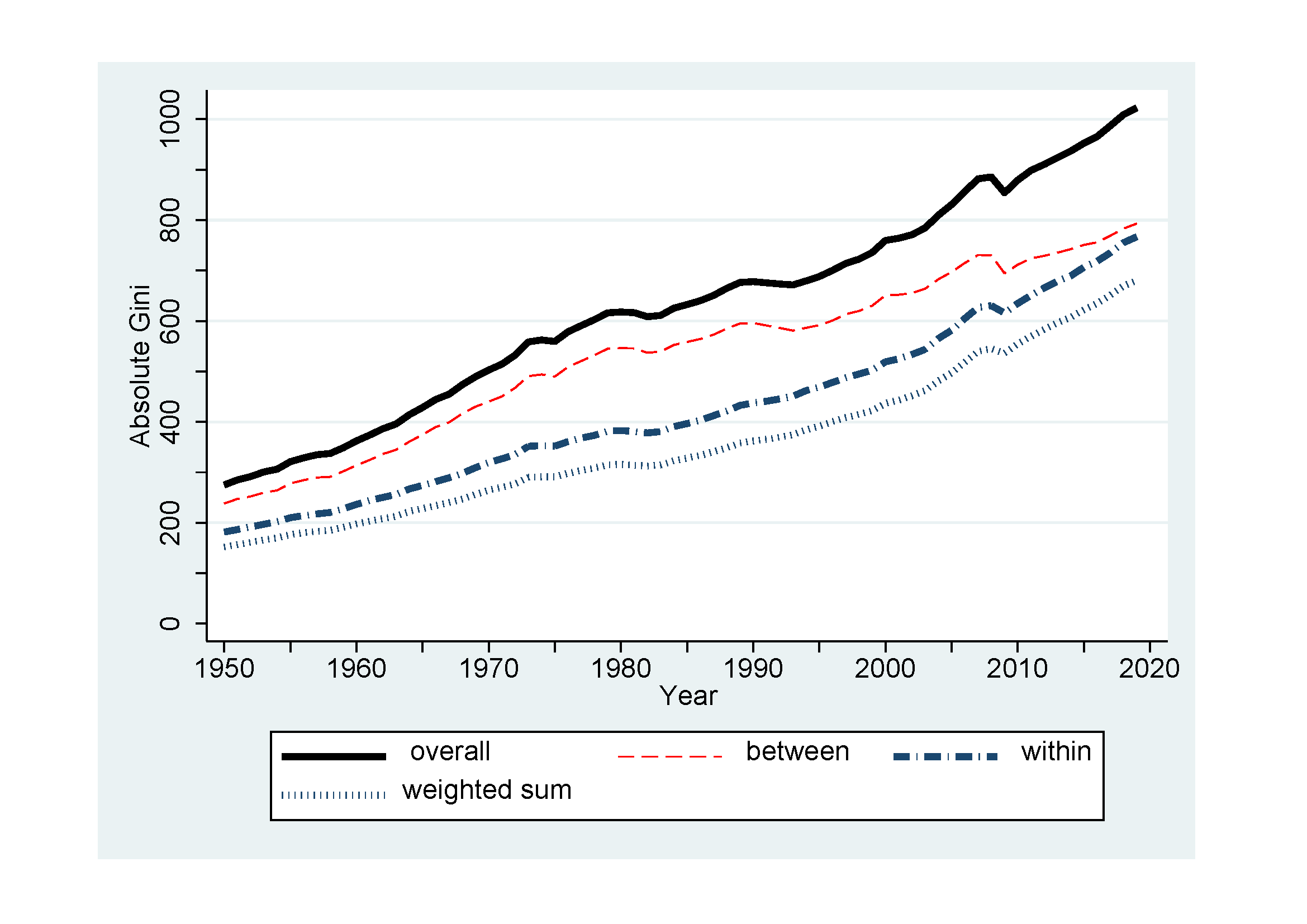
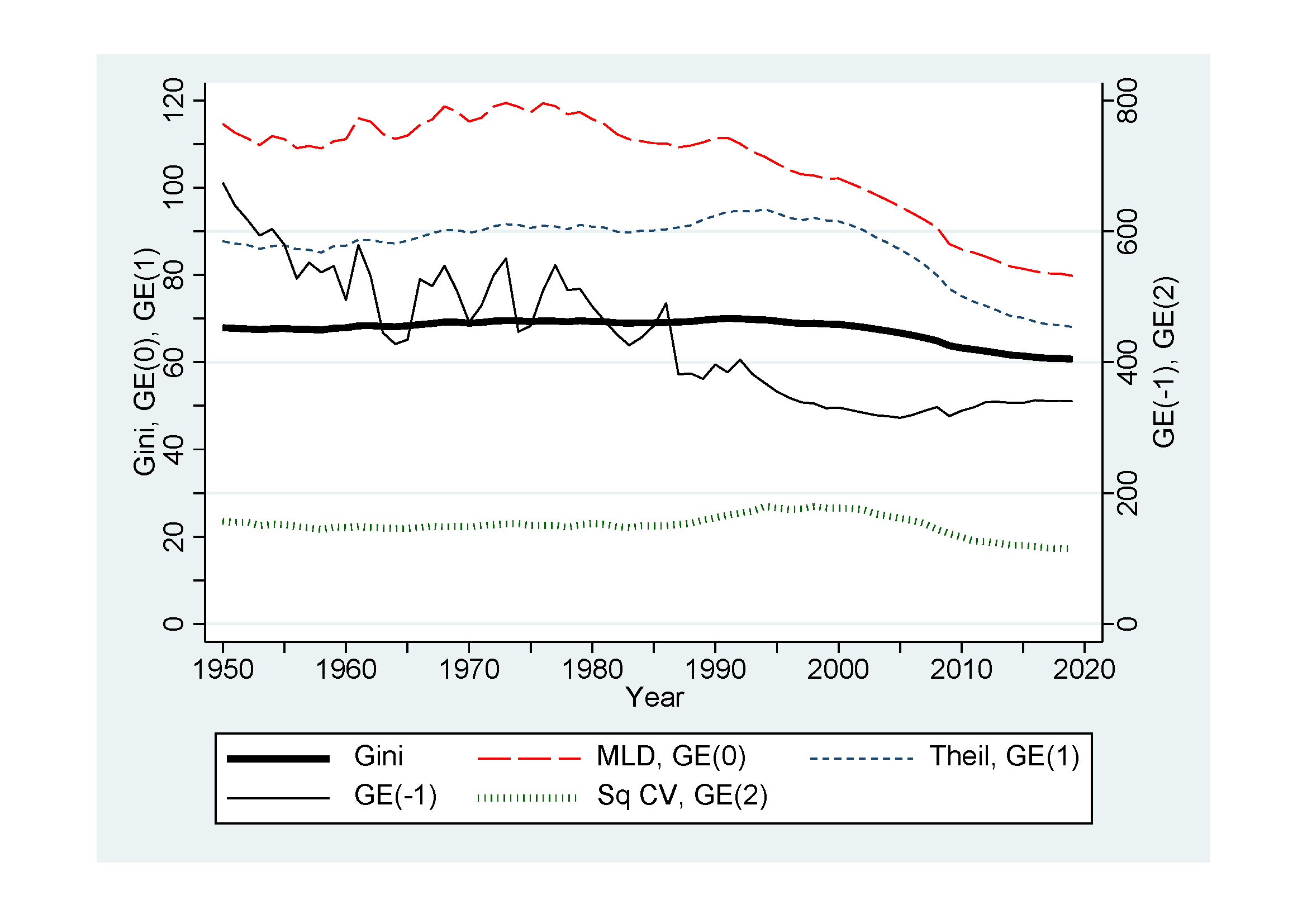
Second, while political will is a required ingredient for any recipe to resolve endemic or systemic inequalities, so too is the knowledge and know-how required to get the job done. It is to this latter ingredient that research findings like those shared at the conference in Bogotá contribute. Research is also fundamental to problem recognition, though we are now at a point of broad consensus that addressing inequalities is an important challenge to overcome.
A call to action
The conference included 31 sessions with expert speakers sharing new knowledge on inequalities from 140 distinct research studies. The 362 attendees represented 49 countries.
Without urgent action, global inequalities —already at extreme levels— will remain high ... a succession of interlinked recent crises now threatens to undo decades of progress.
If asked to bring the knowledge shared together into a summary, admittedly without doing the research justice, I would say the following:
Without urgent action, global inequalities —already at extreme levels— will remain high, both the measures for between and within-country inequality and those inequalities between more and less privileged groups. Adding to this, a succession of interlinked recent crises now threatens to undo decades of progress. It is time to get serious about reducing inequality (and climate change), which will require much bigger international commitments and better national governance.
There is only a short time left to meet the Sustainable Development Goal on inequality (SDG 10). The achievement of SDG 10 requires real and sustained policy efforts from the municipal level on up to multilateral international actions. The achievement of SDG 10 on time, requires these efforts to be made and implemented today.
Research plays a pivotal role in supporting an effective policy agenda and more research on inequalities in different dimensions and in different contexts is very badly needed. Overall, though, the 2022 WIDER Development Conference on Reducing inequality shared frontier research on inequalities and provided a beautiful forum to discuss how best to reduce them, on time, by 2030.
Timothy Shipp is an Editor and Communications Associate at UNU-WIDER with a focus on mobilizing knowledge related to the achievement of SDG10: Reduced Inequalities and SDG5: Gender Equality. He is the managing editor of the WIDERAngle.
The views expressed in this piece are those of the author(s), and do not necessarily reflect the views of the Institute or the United Nations University, nor the programme/project donors.
 Join the network
Join the network
